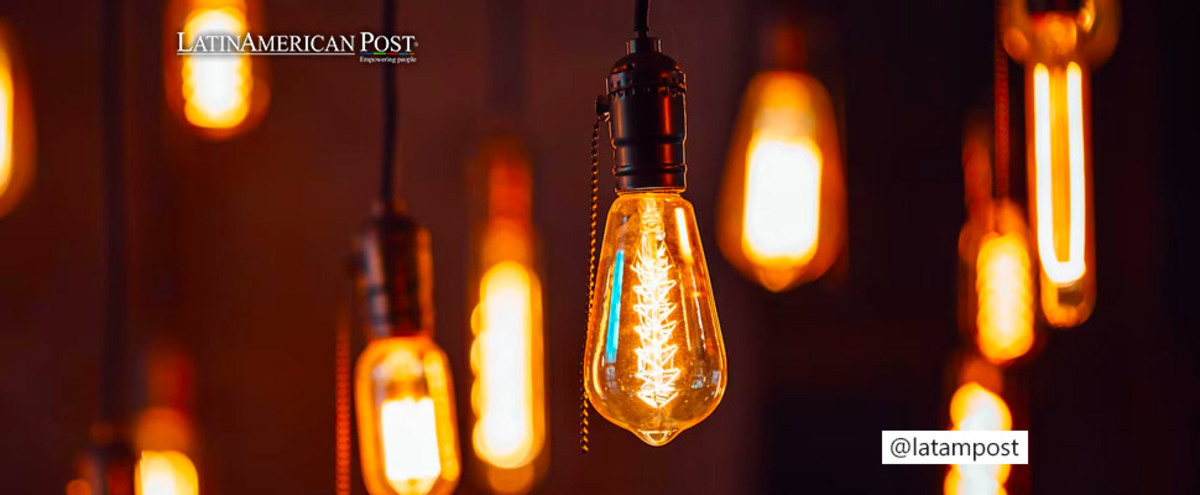Learn About the Negative Effects of Artificial Lights on Health
Artificial lights can have negative effects on health, such as sleep disturbances, eyestrain and mental health problems. We explore its impacts on quality of life.

Photo: Freepik
LatinAmerican Post | María Fernanda Ramírez Ramos
Listen to this article
Leer en español: Conoce los efectos negativos de la luz artificial sobre la salud
In a world increasingly illuminated by technology, artificial lights has become a constant in our lives. We are exposed to them all day, almost from the moment we wake up until the minute before we go to sleep, not only due to light bulbs and lighting in homes and offices, but also due to the use of mobile devices. However, there are growing concerns about the negative effects that prolonged exposure to artificial lights can have on our health.
Various scientific investigations have revealed that artificial light, particularly that emitted by electronic devices and LED bulbs, can upset the natural balance of our biological rhythms. These concerns have increased at the same time that light pollution becomes a bigger issue. A recent investigation published in the Science Magazine found that light pollution has advanced enormously since 2011. This, among other ways, can be identified by the impossibility of seeing the stars. "The number of visible stars decreased by an amount that can be explained by an increase in sky brightness of 7 to 10% per year in the band visible to humans," the publication notes.
We recommend you read: Do you Want to be Happier? Raise your Serotonin Naturally
Why artificial light can affect health?
"Artificial light is made up of visible light and ultraviolet (UV) and infrared (IR) radiation, and there is concern that the emission levels of some lamps may be harmful to the skin and eyes," says the European Commission in an article on artificial light and health. The ultraviolet and blue components of artificial light are the ones that can potentially cause the most damage to health.
In this regard, there is concern that artificial light with a strong blue component may impact circadian cycles and the hormonal system, and be implicated in a wide range of conditions such as sleep disorders, immune system disorders, macular degeneration, cardiovascular diseases. , diabetes, osteoporosis, and breast cancer. This happens mainly because exposure to blue light, especially at night, suppresses the release of melatonin, a hormone that regulates sleep and other biological processes.
Consequently, excess blue light can lead to sleep disturbances and an imbalance in the body's natural rhythms. Additionally, prolonged exposure to artificial light, especially through electronic devices, can cause eyestrain, concentration problems, headaches, and mood swings. In general, blue light and artificial light interfere with the body's natural biological processes, which can have a negative impact on health and well-being.
On the other hand, depending on the type of blue light, there may be an affectation on the skin. A study published in the Journal of Cosmetic Dermatology concluded that: "The use of low energy and short exposure times to high-energy blue light can help prevent skin diseases, while studies have revealed that prolonged exposure to High-energy blue light can increase DNA damage, cell and tissue death, and lead to lesions, eye damage, skin barrier damage, and photoaging."
Light pollution also affects animals
Another worrying aspect of excessive screens and light pollution is that it is also having negative impacts on animals. Artificial light can affect animals in various ways. It can disturb their natural biological rhythms, interfere with their navigation and orientation, alter their feeding and reproduction patterns, and have a negative impact on aquatic ecosystems. Exposure to artificial light can generate stress, physiological imbalances and influence biodiversity. It is important to consider these effects and take steps to minimize the influence of artificial light on animals, such as controlling lighting and reducing light pollution in natural areas.
How to protect yourself from artificial light?
To protect yourself from blue light, it is recommended to limit night exposure to electronic devices and activate the night light mode or use applications that reduce the emission of blue light. Likewise, it is necessary to look for disconnection times from artificial light and expose yourself to natural light. Receiving the sun's rays on the skin has multiple benefits to regulate circadian cycles and absorb vitamin D.
Also, it is necessary that you turn off the lights in your house if they are not necessary, especially those that are outdoors or those that point upwards. In this way, you avoid causing harm to birds and other animals.
On the other hand, you can choose to have blue light filters, there are glasses with lenses that block blue light. Likewise, it is possible to adjust the lighting of the environment and use bulbs that emit red light that does not inhibit the production of melatonin. This, especially at night. You can also pick to light candles some nights and promote spaces with less light when night falls. Finally, if you feel that you have an excess exposure to artificial light, and it coincides with sleep disorders or hormonal alterations, you can consult your doctor or dermatologist on how to manage it.




